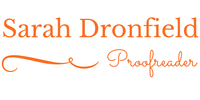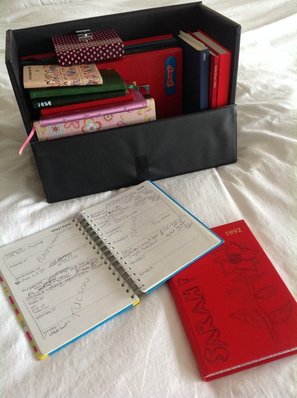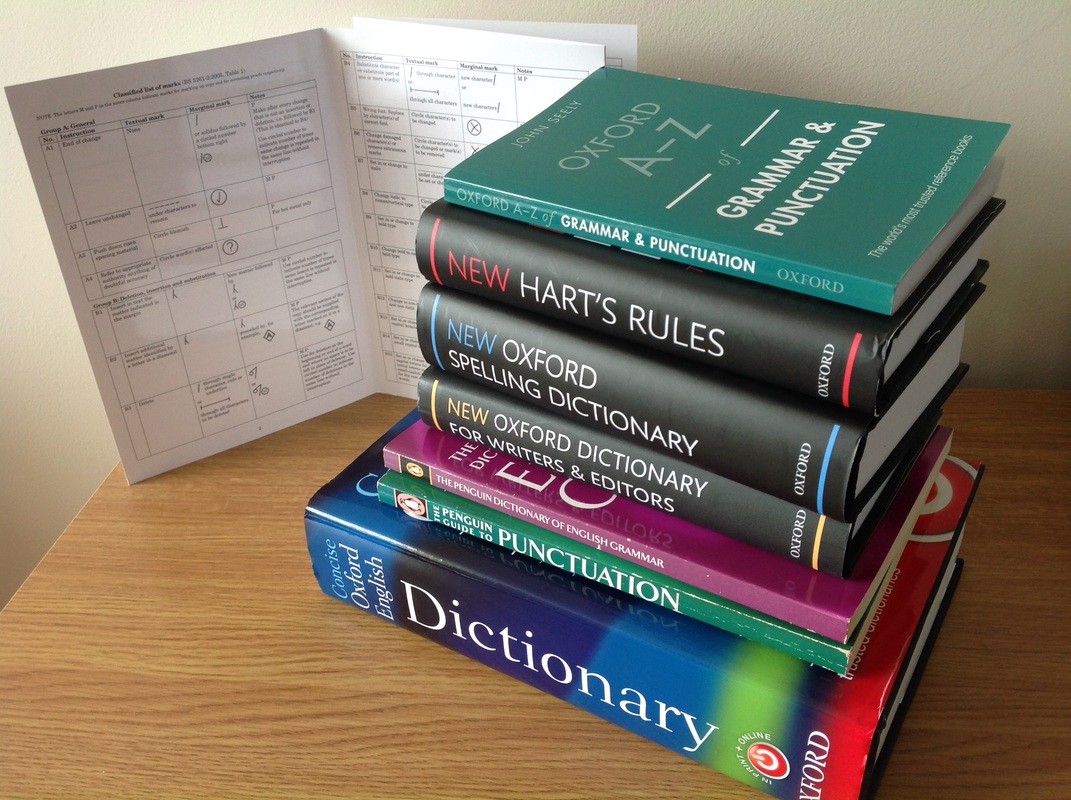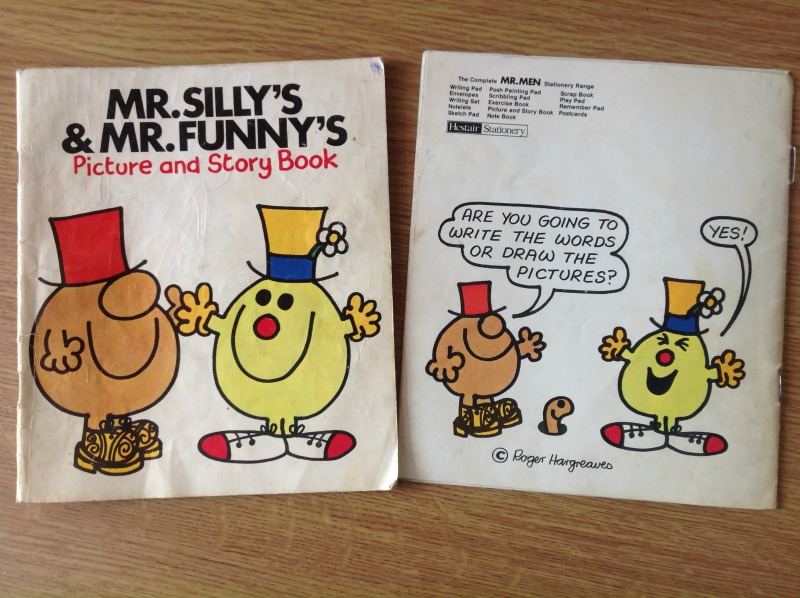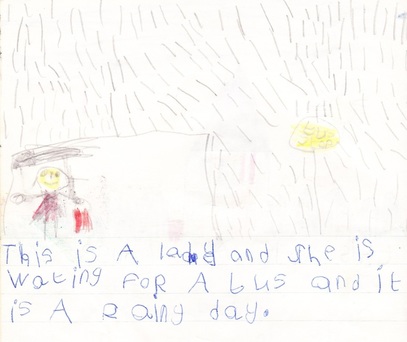|
I didn't publish a blog post last month, for the first time since I started blogging last August. I went away for a few days after Easter, with my family, to Beaulieu in Hampshire – a beautiful place indeed. While I was away I decided it was time to start a course in copy-editing. I booked onto the online course before checking out of the hotel on the Thursday morning so that I could start studying as soon as I arrived home and spend a long weekend working on it. I was making good progress when, on the Monday morning, I received an email from Pinter & Martin asking if I was available to proofread a book. Absolutely. So they sent me the manuscript. It's not every day you get 100 penises in your inbox, unless you get a lot of spam – luckily I don't. Far from being an unwanted communication, this was a very welcome opportunity to proofread a groundbreaking new book. Two years ago, Bare Reality: 100 women, their breasts, their stories was published – a collection of interviews and photographs by Laura Dodsworth, who has now followed up this fascinating project with Manhood: the bare reality, in which 100 men also reveal all – their penises, as well as their life experiences and their thoughts on masculinity and what that word even means in this day and age. Laura was interviewed on Loose Women about the first book, and it was featured in magazines including Cosmopolitan (for the full list of media coverage see here), so I'm looking forward to seeing how this new book will be received – there has already been a preview in The Guardian (which has been shared more than 30,000 times!) prior to publication on 15 June. I've worked on another very special book this month, also for Pinter & Martin: Why Starting Solids Matters by Amy Brown. It's a book I would have found invaluable four years ago when my own child was about to start eating solid foods. It’s a tricky time for parents, trying to navigate the torrent of conflicting advice from well-meaning family and friends, healthcare professionals, the media and various parenting guides. Amy is an associate professor in child public health at Swansea University and an expert in infant nutrition, and in this small but information-packed book she explains the science behind the available options, enabling parents to make informed decisions. This one has also attracted some media attention already, prior to publication on 8 June, on the websites of several national newspapers, including the Daily Express. (I’m not including the link to The Sunday Times because that article misrepresented what the author said, and I refuse to link to the Daily Mail!) It's been an incredibly busy month and my feet haven't touched the floor. As well as the above I’ve also proofread a Master’s dissertation, and I'm currently working on a historically significant project (more on that at a later date), which I’m very excited about and which has involved meeting with my client at the tearoom of Tredegar House in Newport (below) – a convenient location for us both, which just happens to be beautiful. It’s also occasionally the chosen location for our local SfEP group meetings. It's safe to say I'm loving the freelance life!
2 Comments
You love the English language; you've always enjoyed reading; you've spotted errors in published books, or even seen ways in which the book could be improved – so, you think that maybe you could be a proofreader or a copy-editor. But where do you start? A surprising number of people think that, just because they were good at English at school and fancy having a go, it’s okay to ask established editors and proofreaders to pass work on to them. Um, no, that's not how it works – and it could be taken as quite an insult by someone who has spent years building up their skills and client list. There's a lot more to it than you might think; becoming an editorial professional is a long hard slog and requires a diverse set of skills in order to make a success of it. Instead, if you're really serious, here are some signposts you should follow. Go to a local group meeting of editorial professionals. This is a fantastic opportunity to seek advice (not work) from those who are already doing the job. It's a quick and easy way for you to find out whether this is a realistic option for you. In just an hour or two, with little or no cost involved – perhaps transport and a cup of coffee – you could discover whether you're suited to this kind of work, what's involved, plus you will have already begun to build your support network (believe me, you'll need one). This is an example of one such group. If you're in the UK, you can find your local group here. Still interested? Then join a professional organisation. In the UK, it’s the Society for Editors and Proofreaders (SfEP). You don’t have to live in the UK to join the SfEP, but here are some of the other professional organisations from around the English-speaking world: Ireland: Association of Freelance Editors, Proofreaders and Indexers (AFEPI) US: Editorial Freelancers Association (EFA), also, American Copy Editors Society (ACES) Canada: Editors Canada/Editors Association of Canada (EAC) Australia: Institute of Professional Editors (IPEd) Being a member of one (or more) of these organisations shows potential clients that you are a responsible professional, and each organisation usually offers its own set of benefits to help you on your way to becoming qualified and gaining experience. Get training. The SfEP offers training courses at a discount to members, which is just one of many good reasons to join sooner rather than later. An alternative provider in the UK is the Publishing Training Centre (PTC). There are other providers; however, with the SfEP and PTC you know you will be getting an industry-recognised qualification that will stand you in good stead if you hope to work with publishers and will also give you the skills you need to impress private clients. Don't give up the day job. If you already have a job, don't quit it thinking you will be up and running as a freelance editor or proofreader in no time. It usually takes a couple of years before newcomers have managed to build up a steady stream of income. How to find work, or how to get work to find you Set up a website. SfEP Internet Director, John Espirian, has excellent advice on how to do this. Make sure you list any specialist knowledge gained from a degree or work experience, or even a hobby. This is your unique selling point and could really help you in the early days. Market yourself. Don’t expect potential clients to just stumble across your website with no effort on your part. Set up a Facebook page, Twitter account and LinkedIn profile and use them to help direct people to your website by posting and engaging regularly. Start a blog. Louise Harnby offers a wealth of detailed marketing advice on her blog and in her book. Network. Don't just join a professional body, get involved – use the forums to get to know and learn from fellow editors and proofreaders, many of whom have decades of experience. You can also interact with other editors on social media. Don't expect anybody to just hand you work on a plate, but if you spend enough time with your colleagues you just never know what opportunities may come your way! What did I do? I began my journey three years ago and it's almost one year now since I started my proofreading business. I did all of the above, although not necessarily in that order – my first step was to do the training. Not everyone will follow exactly the same path to a career in editing – you have to take the route that’s best for you – but I strongly recommend stopping off at all of these points and definitely undertaking some training before attempting to find paid work. And remember this: there are no shortcuts if you want to be taken seriously by better-paying clients. If you follow the above signposts, you should have a much more successful journey and reach your planned destination without getting too lost along the way! I recently proofread a novel in which one of the characters is prone to malapropisms (mistakenly using a word that sounds similar to the correct word, often with comic effect). I can't give you examples from the book because it hasn't been published yet, but Oxford Dictionaries gives the example ‘to dance a flamingo’ instead of ‘flamenco’. There were several instances where this character used the wrong words in common expressions. This led me to think about proverbs and idioms that people frequently get wrong.
The proof is in the pudding. This is one I often hear or read. The correct phrase is the proof of the pudding is in the eating. You've got another thing coming. What thing? No, think about it, it’s ... if you think I’m going to do that, you’ve got another think coming! He was talking nine to the dozen. Was he really? That’s pretty slow. I think you meant to say he was talking nineteen to the dozen. There are other idioms that started out as one thing but then became another. Perhaps some started out as malapropisms, but they actually made more sense than the original versions in contemporary language and so they stuck, although the originals are also still in use. Parthian shot – this refers to Parthian archers who, while retreating at speed, turned back to fire arrows on their enemy. The alternative, almost identical sounding, parting shot is more commonly used these days to describe a final, usually cutting remark made by a person on leaving a conversation before anyone else has a chance to respond. To welsh/welch on – to fail to honour a deal or promise. The origin is unknown, but is believed to reflect past hostility between the Welsh and the English. Being Welsh, I obviously prefer the latter spelling! Being married to a Dutchman, I also prefer the latter explanation of the following. Dutch courage – this describes the confidence gained by drinking an alcoholic beverage. One possible origin of this is that, when at war with the Netherlands, the English believed that the Dutch could only face going into battle with them when armed with this (false) confidence. Another possible origin is that Dutch gin was drunk by both English and Dutch soldiers before battle, whether to simply calm the nerves or induce bravery. Over the years, I’ve come across many Dutch sayings. There are some that we can understand when translated literally, either immediately or after a little thought, such as ... Van een vlieg een olifant maken = to make an elephant out of a fly. Yep, you guessed it, it’s the same as making a mountain out of a molehill. Then there are others that don’t make any sense when translated into English and require some explanation. De aap komt uit de mouw = the monkey comes out of the sleeve. This is based on an old magic trick and means that the truth of a situation or a person's character becomes known. Dood of de gladiolen = death or the gladioli (referring to Roman times when victorious gladiators were showered with the blooms). This is similar to death or glory, and means all or nothing. Een slag van de molen weg hebben = to have been hit by a windmill, meaning to act crazy. Met de mond vol tanden staan = to stand with the mouth full of teeth, meaning to be speechless. De baard nog in de keel hebben = to still have a beard in the throat, meaning a boy’s voice is breaking. Finally, I’ll just leave you with this one to work out for yourself ... Alsof er een engeltje over je tong piest = as if an angel is peeing on your tongue. Feel free to post your guesses in the comments below! New year, new regime January is a good time to get organised, so one of my resolutions this year is to keep a proper work diary. Although I've always been an organised person (I'm an avid list-maker and diary-keeper) I only started my business nine months ago, and I’ve spent a lot of that time finding my feet. So, although I did make plans and lists, it was all rather random – on whichever piece of paper was closest, or as a memo on my phone. It worked, but, for what will be my first full year in business, I'm determined to do better and pick up tried-and-tested old habits again. This has given me a chance to reflect on how I’ve used diaries in the past and the impact it’s had on my life – and I'm hoping that this reflection will help me come up with the most efficient method of journaling for my business. Step back in time The first year I kept a diary was 1983 – the year I turned ten. It was all very simple in those days ... Played with so-and-so after school ... and the like. In subsequent years my diaries became filled with teen angst and the minutest details about what my latest crush had been up to. There was some indication of my organisational skills in that I always kept a separate calendar diary. I also included useful information in my regular diary, such as what I’d had for tea and a daily weather report – surprisingly fascinating when you look back. Some years I gave each day a mark out of ten, then an overall score for each week. The first year I combined my personal diary with my calendar diary and to-do lists was 1992 – the year I was at college doing A-levels. In those days I had all the time in the world to plan – and to dream. As a result, that diary was full of doodles from cover to cover (flowers and geometric shapes, mostly). There was an area for notes at the end of each week and there I added my to-do lists, hopes, dreams, more doodles, and favourite poems and song lyrics. Often the to-do list was carried forward to the following week. Okay, so I was trying to be organised, but I confess I lacked motivation and I procrastinated. A lot. I was the kind of teenager who would spend so much time planning my exam-revision timetable that I would run out of time to actually revise.
Old habits died a death
I successfully kept detailed diaries for a few more years after my return home, but then motherhood got in the way and smartphones eventually took on the job of keeping my calendar and to-do lists. However, now that I'm back behind a desk, I want to return to paper. It's a more permanent, reliable method – many a phone has died on me, but I still have all my old paper diaries. I work from home, so I don't have to worry about it being easily portable. Back to the future I’d already purchased a wall-mounted year planner and marked it up to show when I have work booked in, when I am unavailable for work, and important dates, such as meetings, so that I can respond quickly when I get a call or an email from a client asking if I'm available. But what about a desk diary for the day-to-day notes and reminders? Bullet journals I did buy a week-to-view diary, but then I started hearing good things about bullet journals. I had no idea what a bullet journal was, so I did some Googling and up popped this Buzzfeed article. So, I thought I'd give it a go. I've used most of the ideas from the article for the skeleton of my journal, but for the main body – what I do from week to week – I’m following the method that worked best for me in the past: a week to a page, with the days of the week listed and a section for notes underneath. I'm going to resist the urge to buy lots of expensive, colourful pens and spend hours doodling to make my journal look pretty; I don't have the spare time that I had back in 1992, unfortunately. So, instead, I've just chosen a notepad that already has a flowery cover – smart thinking, see! I'm going to stay focused and use my time more wisely – which is the whole point of this endeavour, isn't it? Less dreaming, more planning and more achieving. What I’ve learned There are lots of ways to keep a diary/journal. It's good to get ideas from other people, but you need to find the way that works best for you and your lifestyle, otherwise you will lose interest and motivation. If you're not artistic, don't worry about trying to make the pages of your journal look pretty. Being motivated is the key factor. If you don’t enjoy your day-to-day life – whether hobbies, work or family life – then it will be near impossible to keep up the momentum required to stay organised. Figure out exactly what you want and slowly work towards it. Try to focus on what you have achieved and build on that. Let go of unrealistic ideas and expectations – for the time being at least. It was by first making changes in my everyday life (getting a better job and working on refurbishing my house) that I ended up being able to dramatically change my whole life for the better (ultimately, by following my dream of going travelling). Being organised in itself didn’t effect that change – motivation did that – but it was a way of ensuring that it all went smoothly. And so now I want to apply that to my business. I definitely have the motivation – I love my job and I’m working hard to be good at it and make a success of it – and being organised will help ensure that I don’t make mistakes or miss opportunities along the way. Confession This desire to take full control of my work life is partly fuelled by an inability to fully control my home life: my house is a mess, with toys all over the place (fortunately, my study has a lockable door). My dining room has been a shop for the past three weeks, reminiscent of Reggie Perrin's Grot Shop. So, if anyone knows how to convince a small child to stop making a mess, or perhaps tidy up occasionally, please let me know! This year has been ... surreal. So much so that Merriam-Webster has named it word of the year.
So many things have happened that to most of us would have been unthinkable 12 months ago. We have had to say a premature goodbye to far too many talented people and hello to a strange new world of politics. While not as earth-shattering as Brexit or a Trump presidency, things have also changed for me at a personal level in a way I did not at all envisage when the year was still new. And yet, it has all been of my own doing. If you had told me back in January that by Christmas I would be successfully running my own proofreading business, I would have been shocked to say the least. I would have said I don't have the time, the confidence or the ability. Not to mention that it's an incredibly difficult profession to get into, especially for someone with no background in publishing. To be honest, I started a course in proofreading as a hobby, a distraction, something to keep my brain ticking over while being a stay-at-home mum. I didn't plan or expect to go back to work for at least another year or two and certainly not as a proofreader. But thanks to my course tutor, who told me I absolutely was good enough, I began to think that this was actually a possibility. I might still have done nothing about it but, coincidentally, a short time later, an acquaintance posted an appeal for a proofreader to help her. I responded, and I did a good job. I haven't looked back since; I joined the Society for Editors and Proofreaders, set up my website and have spent every free moment building my business and honing my skills. So, although I'm trepidatious about what the wider world has in store for us all in 2017, personally I couldn't be more optimistic. Here's to a happy and healthy New Year for all my friends, family, colleagues and clients! Write without fear
This month both amateur and professional authors all around the world have been taking part in NaNoWriMo (National Novel Writing Month). Participants support, inspire and motivate one another throughout this challenge in which they commit to writing 50,000 words in just 30 days. That’s over 1,600 words a day. When you're racing to meet a word count, it's easy to inadvertently introduce errors – sometimes catastrophic errors that will make it impossible for readers to enjoy your finished novel. However, you shouldn’t worry about this possible eventuality while you’re writing (you don’t want anything to disrupt your creative flow when you have a deadline to meet); there’s plenty of time to edit later. Edit without mercy When it comes to self-editing, it would help if you knew what you needed to look out for. Here are five of the most common mistakes which are most likely to ruin your novel. 1) Run-on sentences and comma splices can result in an amateurish, breathless style and are grammatically incorrect*: complete sentences should not run on into each other without punctuation, nor should they be separated by a comma unless the comma is followed by a connecting word. Choose the most appropriate solution for your sentences from the following options:
2) Badly punctuated dialogue can make your characters' conversations impossible to follow. The rules for punctuating dialogue are too lengthy to explain here, so this blog post is very helpful if you're unsure of them. 3) Continuity errors can leave your readers dazed and confused – for example, characters' names or appearances changing; or a character who is supposed to have died but who suddenly reappears; or a change in narration from first to third person. 4) Tense changes: If carefully done, mixed tenses can be effective; however, when done badly or in error then the only result will be to confuse your reader. 5) Factual errors: Check for technological and historical inaccuracies, such as characters using smartphones and Facebook in a novel set in 2001, or referring to the death of Princess Diana in a story set in 1995. What next? If you are planning to publish your novel, then checking your manuscript and eliminating these errors yourself will result in a more readable novel and save you money when your manuscript goes through the editorial process. That’s when it's time for you to put your feet up, give your eyes a well-earned rest and let an editor and proofreader take care of the finer points for you; then you will have a professionally polished novel of which you can be rightly proud. Think you don't need a proofreader?
If you’re a business owner, you may well believe that you don't need to hire a proofreader, and that it would just be throwing money away. But, instead of looking at it as an unnecessary cost, you should see it as a necessary investment. Why? By not paying enough attention to your business’s written content, you could be unwittingly deterring potential customers. Hiring a professional proofreader can prevent this and so help your business maximise turnover. How? In a recent discussion with friends on Facebook after I posted this article about the grammar police, all but one said that they don't publicly correct other people's grammar. However, they all said that poor grammar and spelling would negatively affect their decision to use a product or service. The question I asked was, ‘How do you react when you read a website or promotional materials with grammar and spelling mistakes? Would it affect your decision to buy a product or service?’ ‘… I don’t shop in places that put additional apostrophes in everything (carrot’s 50p) …’ ‘I would definitely walk away from anywhere making basic errors.’ ‘… poor grammar and spelling will result in less trust in a company ...’ ‘I take a business less seriously if they make mistakes – it shows a lack of attention which I assume runs through every aspect of their service.’ The first important point to take away from my small poll is that mistakes in your written content don’t help build trust in you or your brand. The second is that it’s not just the grammar police (and you only need to pay a brief visit to online forums to see how many of them are in our midst) that you need to consider when estimating how many potential customers you could be losing. In a much larger poll than mine, in 2013, fifty-nine per cent of UK adults said that bad grammar and spelling on a website would make them reconsider making a purchase. Perfecting your written communication will help to build trust with customers: it means you're a professional; you take your business and your product or service seriously. They will therefore be more likely to commit to purchase. Let’s get down to business. How much is an individual customer worth to you? How much business do you get from each, on average? If you considered that the mistakes in your language might be enough to deter even one customer, how much of a loss could that represent? Then consider the reality that it’s likely to be multiple potential customers. How many do you think you could be losing from those who visit your website each day, never to return, or who read the promotional materials that you’ve spent good money on, only to immediately discard them? Compare that potential loss with what it might cost to have your website proofread, for example. If you have never used a proofreader before, then, understandably, you might not have any idea how much this might be. My own fees for this service currently start from around £50 for a very simple website. (Take a look at mine for an example of what I would personally consider to be a simple website.) Proofreading of a promotional leaflet could cost as little as £25* (my current minimum fee). When you look at it from that perspective, perhaps the question should be: can you afford not to hire a proofreader? How do you know if you can trust us? I talked earlier about trust. If you’ve never hired a proofreader before, you might not know how to go about finding one you can trust to make sure that you are investing your money wisely. This blog post gives you some useful tips about what to look out for. Over to you. I’d love to hear from you with your thoughts on this subject, particularly if you have already hired a proofreader and found that it had a positive impact on your business. If you haven’t hired a proofreader before, do contact me if you would like to discuss how I could help your business. *Price updated June 2018. What you might have heard If you’re considering hiring a proofreader for the first time, you might have discussed it with friends, family or colleagues to see what they think. Here are some typical examples of the kind of advice many people in your position tend to receive, followed by my response. 1. 'Don’t bother. All they do is check for typos and you can do that yourself.' If that was all a professional proofreader had to do, then we wouldn’t spend hundreds of pounds and years of training to become fully competent. We also wouldn’t need to invest in dictionaries, style guides and other reference books and materials to assist us in our decision-making. 2. 'Even if you do let a few typos slip through, it doesn’t matter. No one will notice.' They will. And when they do, they might just stop reading, and then all the time and effort that you’ve invested in your writing would have been wasted. I’m sure most people would forgive the occasional error – after all, nobody’s perfect – but anything more than that could be viewed as sloppy, and it wouldn’t be surprising if they then lost faith or interest in whatever it is you’re attempting to communicate. 3. 'You can always use spellcheck.' Spellcheck can be useful, but it won’t help you when you’ve inadvertently used the wrong word; I recently came across the word ‘bondage’ which should have been ‘bonding’ – now that could have been embarrassing for my client! 4. 'No one worries about grammar anymore – language is evolving.' Yes, language is always evolving; new words come and go all the time, and some even stick around. But that’s just vocabulary. Grammar rules do change as language evolves, but it’s a much slower process than the adoption of new words. In the meantime, the rules are there to ensure clarity and consistency in the way we communicate, which is crucial, especially in formal writing. Grammar rules are complex, and one thing is true: you don’t need to worry too much about grammar – let a professional deal with it on your behalf. What do you think? If you are still in any doubt as to whether you need a proofreader, then get in touch for a free quote and to see how I can help you improve your text. I couldn't do my job properly without these
When I was a child, around the age of five or six, I used to write a lot of stories. I had Mr Men exercise books and filled one after another with ‘illustrated’ stories. When I was eight, I started writing a book called The Long-Lost Wizard (J.K. Rowling, eat your heart out). I never finished it, and I only wrote stories occasionally after that. It's odd because my parents, understandably, thought that I would grow up to become a novelist; however, that path lay ahead of my brother instead. Although he didn't write as much as I did while we were growing up, his preference for the darker side of storytelling was already showing itself even in those days (you can see a charming example below, which he left in one of my exercise books). In comparison, my stories almost always began with the words, ‘It is a sunny day…’. We weren’t exactly the Brontë sisters. An example of Jeremy Dronfield's early work In later childhood, the only writing I did voluntarily on a regular basis was to keep a diary, which I continued to do most years until the age of 30 when I gave up my job, sold my house and went travelling, and then I kept a detailed journal of my adventure. (I definitely have to get that typed up one day, if only for backup purposes.) The only story I ever wrote in which the weather was inclement (and, yes, it would have benefited from being proofread) Looking at them now, I find that most of my stories were actually an early form of diary-keeping: a story about playing with my friends; a story about going to the park; a story about going on a holiday or a school trip. Apart from The Long-Lost Wizard, my stories lacked imagination. So, instead, I discovered reading and lost myself in other people's imaginations and the world of books.
In the beginning it was mostly Enid Blyton’s stories of the Faraway Tree, the Secret Seven and the Famous Five. My brother encouraged me to have a go at The Hobbit, but I'm afraid I couldn't get past giggling at an illustration of Bilbo Baggins’ feet. Childish I know. Well, to be fair, I was a child. I didn't just love the stories, though; I loved the books themselves: how they felt in my hands, the look of them; and not necessarily just because of an interesting cover, but because of how the words looked on the page: the layout, the font, how they worked with the illustrations (Bilbo Baggins’ feet notwithstanding). As I got older, however, I started to notice when things weren't quite right. It wasn't always enough to spoil my enjoyment of a good book, but it would definitely distract me, throwing me out of the book and back into the real world with a jolt. I would keep going back to any error I found, and I would wonder how it had happened, and think what a shame it was, and that I'd love to be able to do something about it. But how? I had no idea. I've had, shall we say, quite a varied career spanning 20 years, including mortgage admin, archaeology, and motherhood. It's motherhood which has at last propelled me into a career as a proofreader. I had to find something I could do from home. I had to bring some much-needed order into my life to offset the chaos that ensues after having a baby. And what better way than, finally, to gain some satisfaction by preventing errors from appearing in print or on screen? I might not have been able to fathom how to go about becoming a proofreader when I was in my teens and early twenties, but now in my early forties and with the help of the Internet, I have found it relatively easy to do so. I quickly found out that the best course of action for me would be to take the Publishing Training Centre’s Basic Proofreading by Distance Learning course. And, oh, what satisfaction I discovered indeed when settling down with my red and blue pens to attack a page full of errors! I passed the course with merit. Only counting the weeks when I actually spent time working on the units and assignments, it took me around eight months to complete the course. Since then I’ve been busy setting up my proofreading business and finding my first clients. I wouldn't have been able to do this without the invaluable resources of the Society for Editors and Proofreaders (of which I am now a member) and Louise Harnby’s books on business planning and marketing for editorial freelancers. I feel I've finally found the job I was always meant to do. Although, even if I could, I wouldn't alter the path that led me to this point. Apart from the fact that I enjoyed every minute, the qualifications and experience I picked up along the way mean that I have both general and specialist knowledge that gives my clients extra confidence in my abilities to handle any work I undertake for them, because I am able to spot factual as well as grammatical errors. So was I born to proofread? I don't think that would make a very good song title, but perhaps it's true all the same. I don't think I was born to be a writer in any case, apart from being an avid diary-keeper. Does that mean I'll make a good blogger? I guess we're about to find out... |
